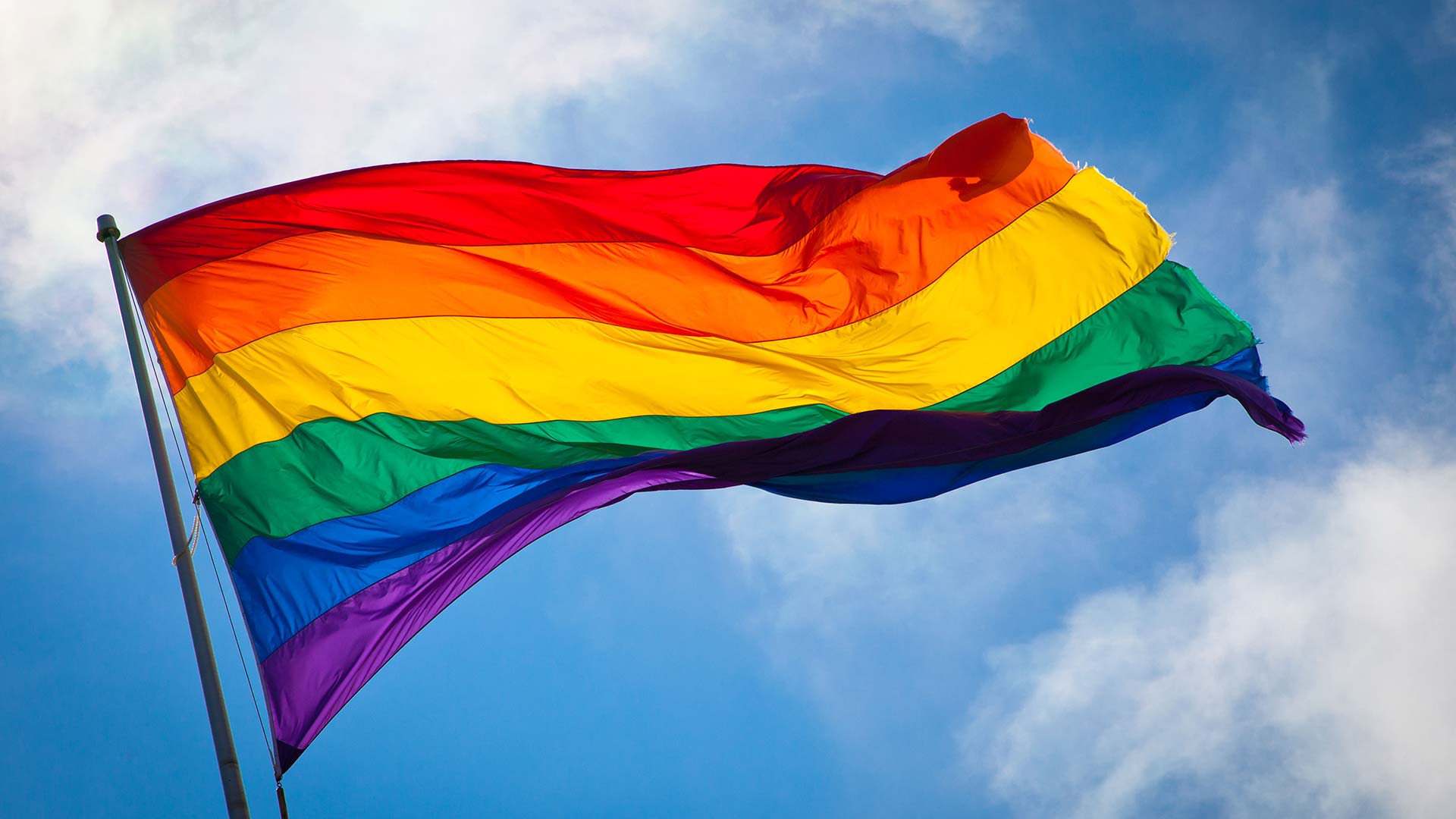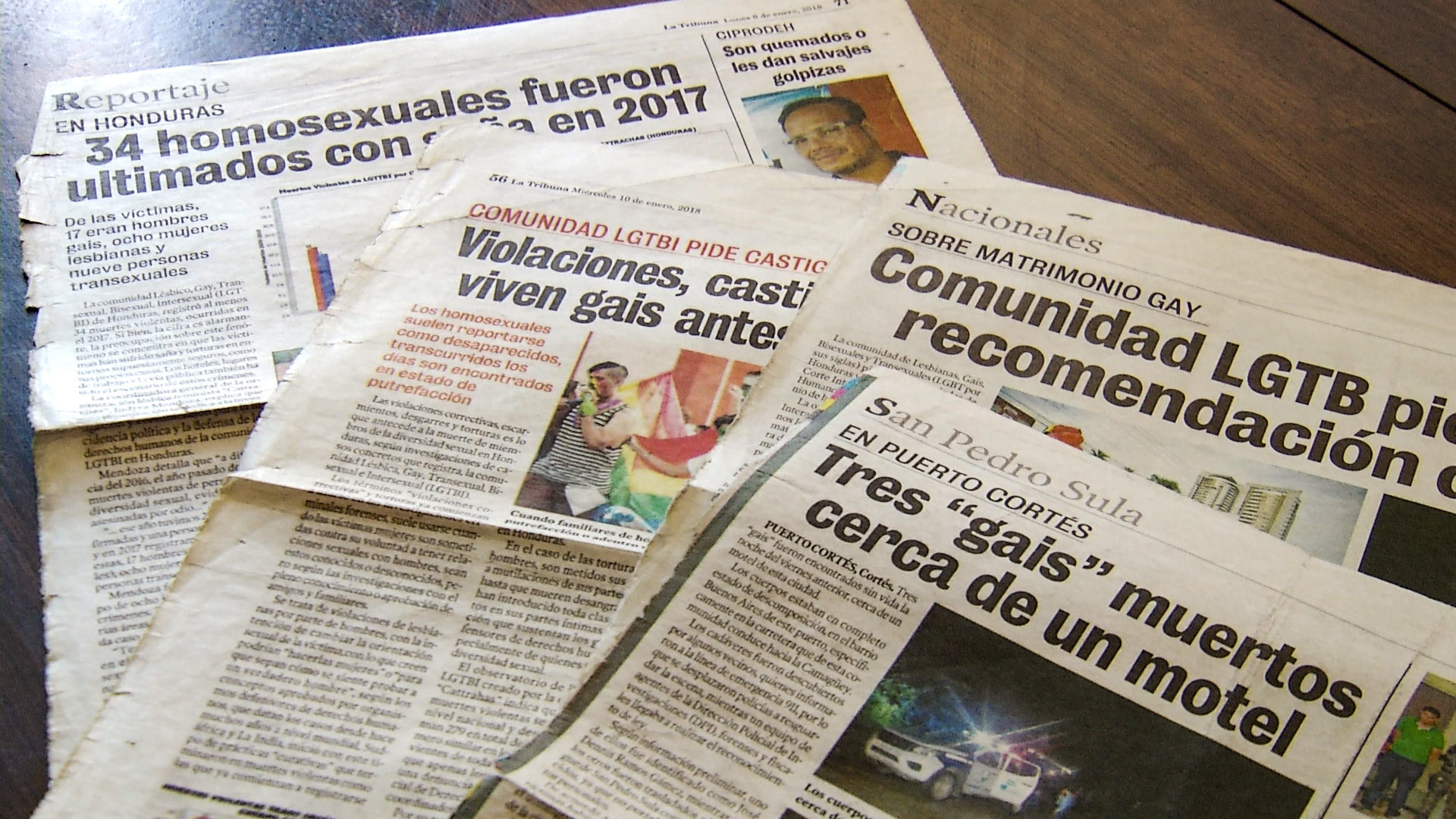 A rainbow flag.
A rainbow flag.
It starts years before they made it to the U.S.-Mexico border in October 2022 and turned themselves into authorities, in Yuma, Arizona, asking for asylum.
Reydi’s story starts in his home country, Venezuela, in 2017. He had been doing political activism on and off for years. He finished his law degree and was teaching classes at the university when the Bolivarian Intelligence Service, which has an extensive record of human rights violations, detained him and some of his colleagues at the university for political reasons.
“You weren’t allowed to call anyone,” Reydi said in Spanish. “Obviously, people were tortured and mistreated when they would ask anything. It wasn't a police department or anything. It was a very strange place and very far from anything.”
Reydi was detained for two days, and when he got out, he and some of the others decided to leave the country.
He wanted to work, and he wanted to get his law license in another country, but the Venezuelan government withheld his passport, which made starting a new life nearly impossible. In Columbia, Peru and Ecuador, he struggled to get a foothold.
Then he met his boyfriend. Reydi was hesitant to get to know someone at first after all he’d been through, but soon they started hanging out. Reydi didn’t have a cell phone, so his boyfriend would just have to show up and surprise him. It felt special — a throwback to a time before cell phones and constant contact.
“He had to come by surprise,” he said. “He would tell me, see you tomorrow at 4 in the afternoon. We would see each other the next day — like before, when there were no cell phones and there was that expectation of waiting for your partner, girlfriend or boyfriend, like butterflies.”
He moved in with his partner, and they created a life together in Ecuador. Reydi began to heal from some of what he had endured.
One evening in 2020 they were eating out for Reydi’s birthday when some men approached them and began to yell homophobic slurs. The men grabbed their chairs, hit them and told them they weren’t welcome there.
After that, such attacks continued. One day, Reydi’s partner picked him up at work. And while they were walking back to the car, holding hands, some men attacked them.
They went to file a complaint with the Ecuadorian prosecutor's office but they told Reydi because he wasn’t in the country legally, they couldn’t file one.
“After that, they later went to the house, the same people who attacked us,” he said. “They went to the house. I was with my partner there. They attacked us there. They threw bottles at us, and showed up with guns."
Reydi and his partner finally decided to leave the country.
They walked three days through The Darién Gap, the stretch of land connecting North and South America that’s become infamous as a treacherous migrant crossing. His partner twisted his ankle, but they kept going. They saw people in dire need. They saw a group of children, crying from hunger, and Reydi gave them some candy he had been saving.
As they made their way through Central America, they joined a group of about a dozen migrants. The night they crossed into Guatemala on a bus, someone started shooting at them. One of Reydi’s group, a father from Cuba, was shot in the neck.
As they waited an hour for the ambulance, the man’s wife held a shirt on the wound while Reydi comforted the 16-year-old daughter. They separated from the group but later heard the man survived.
 VIEW LARGER Local newspapers in Honduras display stories of violence towards the LGBTQ Community. (2018)
VIEW LARGER Local newspapers in Honduras display stories of violence towards the LGBTQ Community. (2018) They snuck into Mexico, with the help of a coyote.
“So, then we started to go through Mexico, which was hell,” Reydi says. “You could say it was hell on earth.”
They were detained by Mexican immigration officers and put into Estación Migratoria Siglo XXI, a migrant detention center in southern Mexico that is known to have inhuman conditions and human rights violations.
They released Reydi after a day, but kept his partner detained for four.
In the jail, the staff ridiculed gay men and called them derogatory terms. Reydi filed a complaint with an international human rights group.
The day his partner got out of Siglo XXI was Oct 12, the day President Joe Biden announced a new immigration rule that immediately expelled most Venezuelan migrants to Mexico while simultaneously creating more legal pathways for them to enter the country. To access one of those pathways, someone needed a passport and a sponsor in the U.S. Reydi had neither.
Reydi told his partner he thought he had reached the end of the line, but his boyfriend convinced him to try — he had a legitimate asylum claim.
They crossed the border in Yuma where there’s an opening in the wall. There were many others crossing, and they got in line. After being processed, border officials separated them. Reydi was deported to Nogales, Sonora, and his partner was put in detention in Arizona.
After his partner spent 14 days in immigration detention, Reydi bailed him out and bought him a plane ticket to New York City.
Reydi connected with the nonprofit Kino Border Initiative in Nogales, Sonora, and they connected him with pro bono legal help through the The Florence Immigrant & Refugee Rights Project, who was able to get him into the U.S. on an asylum claim.
His partner bought him a plane ticket to New York and met him at the airport with roses.
Reydi has a hearing in his asylum case in October, nearly a year after coming into the country. He hopes they grant his case or at least give him permission to work.
In Venezuela, he was an educator and a lawyer, who practiced commercial law and has an expertise in Venezuelan law on protecting the rights of children. In New York, he makes pizza and busses tables.
His partner likes New York. For Reydi it’s a bit hectic, but he likes the diversity.
“Because you learn a little more every day about each culture, each person,” he said. “And you learn to respect each religion a little more because we are all the same but different at the same time.”
His mom is happy he made it, but she knows that wherever he is, he will do the right thing for himself and his family.
"She knows that wherever I am, I'm going to keep going,” he says.

By submitting your comments, you hereby give AZPM the right to post your comments and potentially use them in any other form of media operated by this institution.